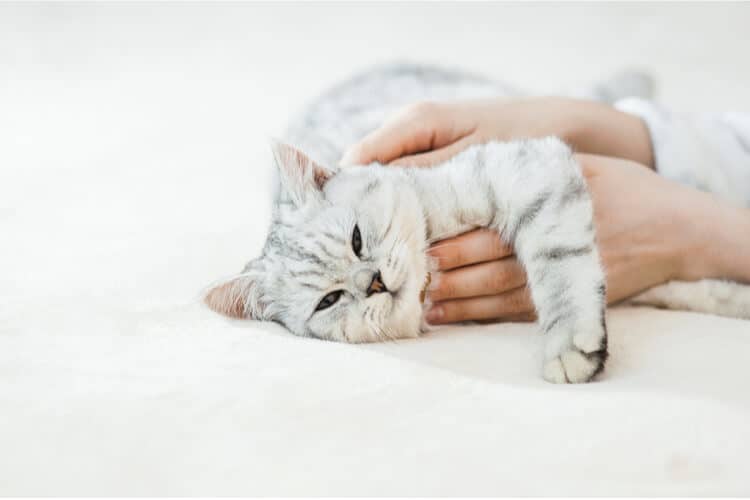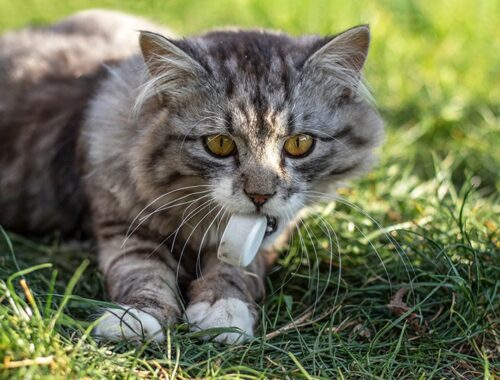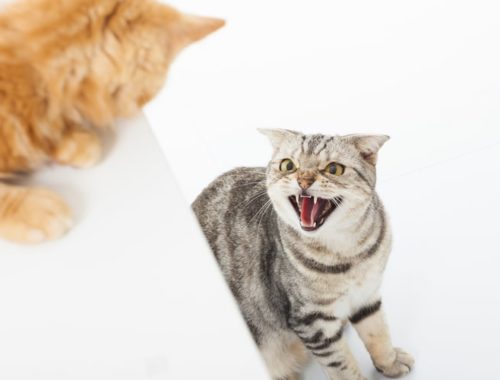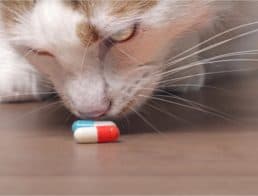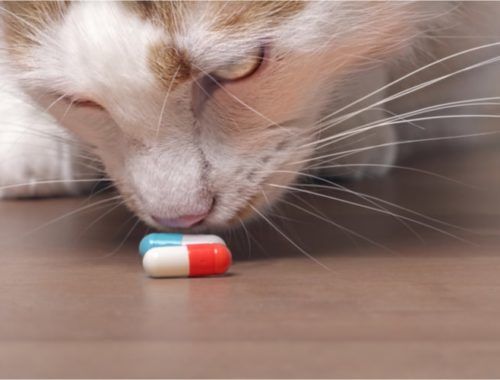Question: What Can I Do for My Cat with FIP?
My 9 month old kitten has just been diagnosed with wet FIP, my vet has offered no curative plan. Can you please enlighten me on the latest research and what medicinal plan can we put him on.
We adopted a family of four brothers, and this kitten, LB, is so very special to us as he reminds us of our cat we had for ten years and lost last year to cancer. He has been our light. We are so desperate for any help we can get.
Thank you for taking the time to help save our LB.
Rita & Mike Falconer
Answer:
Dear Rita and Mike,
You must be kind-hearted folks – taking in four kittens! It’s always a shock to learn your young kitty has an illness, and especially when that illness is FIP.
FIP is an acronym for feline infectious peritonitis. It’s a syndrome caused by a mutation of the common feline coronavirus. Most cats are infected with this virus but never get very sick from it. However, if the virus mutates in your cat and becomes virulent, it causes all kinds of problems.
Researchers believe that FIP is an immune-mediated disease, meaning the symptoms are caused more by the cat’s reaction to the mutated virus than by the virus itself.
There is no specific treatment known to cure FIP at this time. While spontaneous remission occasionally occurs, the prognosis for long-term survival is poor. Therapy consists of supportive and palliative care, which may include:
- Prednisone is a corticosteroid that will suppress the over-active immune response causing symptoms. It can improve the quality of life and slow the clinical progression of the disease for a period of time.
- Interferon is another medication thought to have antiviral activity against feline coronavirus. It has been used by veterinarians for many years to treat cats with FIP. However, clinical studies have failed to show a positive effect on survival times in cats medicated with interferon.
- Polyprenyl Immunostimulant (PI) is a drug being studied, but it is not available commercially. In a study of three cats with the dry form of FIP, two cats were still alive two years after the study. The third cat survived 14 months after 4.5 months of treatment (1). The wet form of FIP doesn’t seem to respond to PI treatment. Cats with documented dry FIP may participate in ongoing clinical research. Your veterinarian can contact Dr. Al Legendre at [email protected].
- Other drugs under investigation that may provide hope in the future include antiviral protease inhibitors (2) and nucleoside analogs (3). There are promising studies showing that treated cats can survive FIP. Unfortunately, these drugs are not yet available and the studies are closed.
- Cats with FIP are immune-compromised, so it’s important to treat any concurrent illness aggressively.
- Avoid stress. Some of the most stressful events for cats include changes in the home including the introduction of new pets and people, boarding, grooming, and even trips to the veterinarian. Not all of these can be avoided, but consider your cat’s health before making decisions that may cause him stress.
I am sorry not to have better news regarding LB’s wet FIP, but I do hope this helps.
Regards,
TB Thompson, DVM
—
References:
- Legendre, A. M., & Bartges, J. W. (2009). Effect of Polyprenyl Immunostimulant on the survival times of three cats with the dry form of feline infectious peritonitis. Journal of Feline Medicine and Surgery,11(8), 624-626. doi:10.1016/j.jfms.2008.12.002
- Pedersen, N. C., Kim, Y., Liu, H., Kankanamalage, A. C., Eckstrand, C., Groutas, W. C., . . . Chang, K. (2017). Efficacy of a 3C-like protease inhibitor in treating various forms of acquired feline infectious peritonitis. Journal of Feline Medicine and Surgery,20(4), 378-392. doi:10.1177/1098612×17729626
- Murphy, B., Perron, M., Murakami, E., Bauer, K., Park, Y., Eckstrand, C., . . . Pedersen, N. (2018). The nucleoside analog GS-441524 strongly inhibits feline infectious peritonitis (FIP) virus in tissue culture and experimental cat infection studies. Veterinary Microbiology,219, 226-233. doi:10.1016/j.vetmic.2018.04.026


